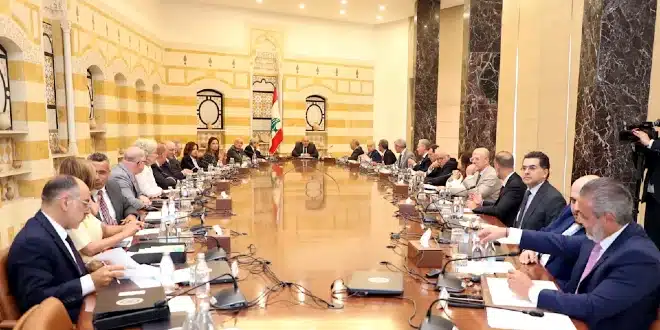Diplomatic efforts are underway in Lebanon to ease political tensions ahead of a sensitive Cabinet session scheduled for Friday, where ministers will debate an army-prepared plan to reinforce the state’s exclusive control over weapons. The issue remains one of the most divisive in Lebanese politics, touching directly on the role of Hezbollah and other armed groups.
Securing Quorum for the Session
According to Asharq al-Awsat, a government minister confirmed that representatives from both Hezbollah and Amal will attend Friday’s meeting, ensuring a full quorum. The minister added that Hezbollah has no intention of boycotting the session or mobilizing supporters for street protests, signaling a preference to engage in dialogue rather than confrontation.
The confirmation of participation is significant, as past sessions addressing national defense and arms control have often been disrupted by political walkouts or threats of civil unrest.
Behind-the-Scenes Talks
The same minister revealed that President Joseph Aoun has been engaged in both direct and indirect discussions with key political leaders to defuse tensions. These include Parliament Speaker Nabih Berri, Prime Minister Nawaf Salam, and senior Hezbollah figures. The goal, officials say, is to avoid deepening divisions within the Cabinet and to reassure international partners that Lebanon is committed to strengthening state institutions.
Balancing Domestic and International Pressures
The Lebanese government has reiterated its commitment to the principle of the state’s monopoly on arms—a stance that has broad support not only domestically but also from Arab allies and the wider international community. Officials stressed that Beirut has no interest in being “drawn into an Israeli political trap” that could isolate Lebanon or pit it against its international partners.
The issue of disarmament has long been a fault line in Lebanese politics. While Hezbollah argues its weapons are necessary for defending Lebanon against Israel, opponents see the group’s arsenal as undermining state sovereignty and fueling political instability. Friday’s session, therefore, is expected to be a key test of whether dialogue can move the country closer to a consensus on one of its most sensitive national security challenges.


